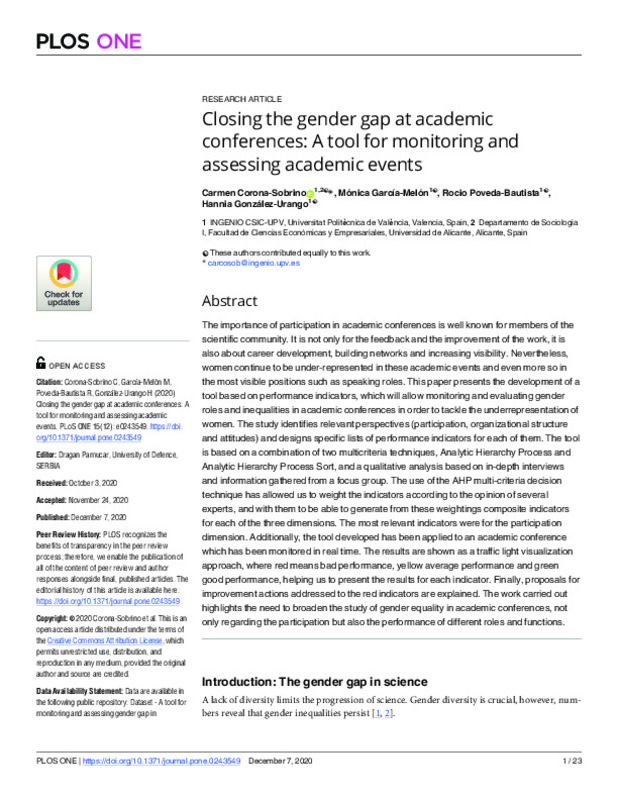JavaScript is disabled for your browser. Some features of this site may not work without it.
Buscar en RiuNet
Listar
Mi cuenta
Estadísticas
Ayuda RiuNet
Admin. UPV
Closing the gender gap at academic conferences: A tool for monitoring and assessing academic events
Mostrar el registro completo del ítem
Corona-Sobrino, C.; García-Melón, M.; Poveda Bautista, R.; Gonzalez-Urango, H. (2020). Closing the gender gap at academic conferences: A tool for monitoring and assessing academic events. PLoS ONE. 15(12):1-23. https://doi.org/10.1371/journal.pone.0243549
Por favor, use este identificador para citar o enlazar este ítem: http://hdl.handle.net/10251/176123
Ficheros en el ítem
Metadatos del ítem
| Título: | Closing the gender gap at academic conferences: A tool for monitoring and assessing academic events | |
| Autor: | ||
| Entidad UPV: |
|
|
| Fecha difusión: |
|
|
| Resumen: |
[EN] The importance of participation in academic conferences is well known for members of the scientific community. It is not only for the feedback and the improvement of the work, it is also about career development, ...[+]
|
|
| Derechos de uso: | Reconocimiento (by) | |
| Fuente: |
|
|
| DOI: |
|
|
| Editorial: |
|
|
| Versión del editor: | https://doi.org/10.1371/journal.pone.0243549 | |
| Código del Proyecto: |
|
|
| Agradecimientos: |
Grant Number OR2019-60221 Funder: Open Society Foundations Programme: Open Society Initiative for Europe Award: Expanding the Female Talent Pipeline in Europe https://www.opensocietyfoundations.org/The funders had no role ...[+]
|
|
| Tipo: |
|









